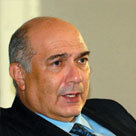
Mostafa Terrab
CEO of OCP Group
Industry / Morocco
Nurture and grow
Was the Phosphate industry affected by the instability experienced in several countries in the MENA region?
There were some interruptions of phosphate mining and production in the region. You have to remember that the Arab Spring was strongly linked to the population’s expectations on how a country’s resources should be shared. Even in Morocco, the youth reminded us of our special responsibility to make the natural resources of our country work to the benefit of all our people, including the unemployed. This was the inspiration for our major youth employment and entrepreneurship program, OCP Skills, which offers a model of how state-owned companies can build economic and social opportunities and empowerment for our people.
Before discussing your strategy, what are the key facts and figures about OCP?
OCP is the world’s leader in phosphate exports and the fifth-largest fertiliser company. Our 2012 turnover was $6.9 billion with net profits of $1.6 billion. OCP currently accounts for about 30% of Morocco’s exports, reaching 150 customers on 5 continents, and employs over 22,000 people.
What are the ambitions and the major projects for the group in the coming years?
We are undertaking a massive, multi-year investment and industrial development program to expand our capacity and meet growing global demand for our products. This involves doubling our mining capacity and tripling our downstream fertiliser production capacity, while reducing our environmental footprint. We shall assure the long-term sustainability and prudent development of Morocco’s phosphate resources for the benefit of the country and the service of a growing world population.
How can OCP contribute to the sustainable development of agriculture in Africa?
We want to develop sustainable solutions for feeding a growing planet. We can use agriculture as a driver for Africa’s own sustainable and inclusive development. We need to continue the recent efforts to reverse the dramatic disinvestment in African agriculture since the 1980s. It is not just about making funding pledges for African agriculture; we have to partner with Africans to develop scalable, sustainable approaches that are appropriate to the continent’s natural, economic and human assets. We are developing adapted fertilisers for African soils and crops. We are producing the information that farmers need, including soil fertility maps. We are also working to promote, through our Global Food Security Initiative, investments and innovations in the agriculture sector that will benefit African smallholder farmers – most of whom are poor, and the majority women.
What were the key findings of the Global Food Security Forum held in Rabat?
The Forum raised the question of how to help Africa to be a core part of the solution to the food security challenge rather than the focus of the problem. Investment and innovation are key, but equally important is re-legitimising and supporting agriculture as a valued livelihood and a sustainable business for the next generation of Africans. We also need to find ways to strengthen Africa’s agricultural terms of trade. Our next is to move to debate from action with concrete projects to support and stimulate businesses that serve African smallholders.
What lessons do you draw after seven years at the head of OCP?
I am blessed to work with roughly 22,000 dedicated people at OCP, very diverse in their backgrounds, but united in the goal to strengthen OCP as a Moroccan champion. In the past seven years we have strengthed our operations while we were broadening our global reach. We have dramatically improved the company’s financial performance and reduced our environmental footprint.
What is your key message to the participants in WEF MENA 2013 and investors from the Gulf Region?
The entire African continent, from its North facing the Mediterranean to its Southern tip, is a land of enormous opportunity, and will play a major role in the global economy of the 21st century.
